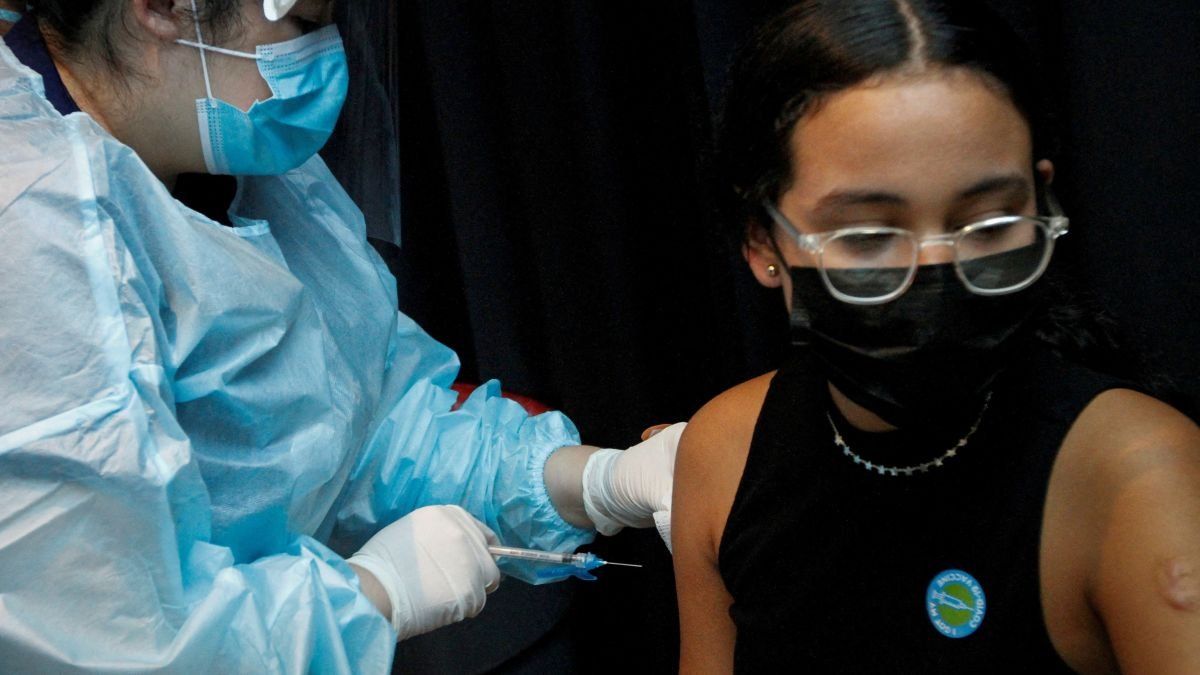On Sept. 4 Florida Surgeon General Joseph Ladapo announced plans to repeal childhood vaccine mandates in the state’s public schools. Ladapo likened mandates to “slavery” while Governor Ron DeSantis emphasized the importance of protecting medical freedom.
The decision makes Florida the first state in 45 years to seek to make childhood vaccines optional, and has serious implications for public health and states’ rights. Advocates cheer it as a triumph for medical freedom and parental rights, while opponents decry it as a step back in the fight against infectious disease – and, possibly, a risk to the health of the nation.
Vaccine mandates date back decades
The state of Massachusetts implemented the first US vaccination requirements for smallpox in the 1850s, and by 1900, nearly half of the states had done the same. The federal government enacted its first Childhood Immunization Initiative in the 1960s after a major measles outbreak, recommending a common vaccine schedule, and President Bill Clinton implemented another in 1993 to combat polio, mumps, measles, whooping cough, and diphtheria.
Since 1980, all US states have all had vaccine mandates for public schools, but have the right to grant medical exemptions for students who are allergic, immunocompromised or otherwise cannot tolerate vaccines, as well as non medical exemptions on religious or philosophical grounds. In the 2024-2025 school year, 3.6% of students nationwide had an exemption for at least one vaccine, nearly double the rate in 2021-2022. Idaho and Alaska had the highest rates of exemptions, 15.4%, and 9.4%, respectively, mostly for non-medical reasons.
What is Florida planning?
The Florida Department of Health will end the vaccine mandate for hepatitis B, chickenpox, Hib influenza and pneumococcal diseases such as meningitis, beginning 90 days from now. The new rules may not take effect this school year at all, however, because changes to state vaccine mandates require legislative amendment. Florida’s Democratic minority has vowed to fight them; and even if they do pass, there could still be lawsuits from parents, teachers, teachers unions, and vaccine advocates.
Medical freedom, states rights and public health
Florida’s mandate repeal revives the question of how far can states push policies that can impact citizens of other states. Doctors caution that Florida’s status as a major tourist destination could put at risk immunocompromised travelers or those whose vaccines are not up to date. These travelers could also bring illness back home, potentially infecting other vulnerable populations.
Defenders of Florida’s move, however, say this isn’t just an issue of states’ rights, but of personal freedom and parental rights. Ladapo admitted that he had not studied the impact of the repeal on the spread of disease, but said that “It’s an issue of right and wrong,” saying earlier, “Who am I as a man standing here now to tell you what you should put in your body?” President Donald Trump countered Friday, however, that “you have some vaccines that are so amazing, the polio vaccine,” that “should be used; otherwise, some people are going to catch it, and they endanger other people.”
Health as an ideological divide
The public is split on changes to federal vaccine policy, largely along partisan lines. A recent poll by KFF about the federal reduction in the availability of COVID vaccines found two in ten Americans, including 41% of Republicans, think these changes will make people safer, while about one-third of respondents including most Democrats (62%) and four in ten independents (41%) say they will make people less safe.
State legislation could similarly divide along ideological lines. The Democratic governors of California, Oregon, and Washington have formed the West Coast Health Alliance to “uphold scientific standards” in defiance of MAHA policy. Similarly, the blue-leaning states of Massachusetts, Maine, Vermont, Connecticut, Rhode Island, New York, New Jersey, and Pennsylvania are looking atworking together on immunization policy and guidance that differs from MAHA criticism of vaccines.
